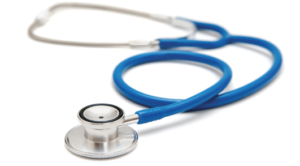Many people are unable to access reproductive health services – Stakeholders
 Participants at a two day training have expressed concern about the inability of many young people in the country to access reproductive health services.
Participants at a two day training have expressed concern about the inability of many young people in the country to access reproductive health services.
The programme, dubbed” Get Up Speak Out (GUSO) Social Justices Training”, was organized by the Ghana Sexual and Reproductive Health and Rights (SRHR) Alliance of Young people in Ghana.
The programme, attended by representatives of social justice institutions including the Commission on Human Rights and Administrative Justice (CHRAJ), the Department of Social Welfare and Community Development, the Ghana Health Service, the Ghana Education Service and the National Youth Authority (NYA), was aimed at building stronger alliances to help address the problem.
The participants blamed the inability of many young people to access reproductive health services to factors such as providers’ bias, restriction by law, fear of being branded bad girls or bad boys, distance to service, unfavourable opening hours and lack of knowledge about the availability of such services.
Ms Ira Etsa Heathcote-Fumador Akpalu, the Regional Coordinator of Hope For Future Generations (HFFG), said research conducted by the World Health Organization reveal that providers’ bias towards young people seeking reproductive health service and negative social, cultural values and norms were among the root causes of the problem.
“Thus some service providers are reluctant to provide contraceptive services to young people for fear that they may be seen promoting promiscuity among the youth”, she said.
The Regional Coordinator attributed the high incidence of teenage pregnancies, HIV/STDs and complicated abortions among the youth to the inability of many of them to access reproductive health services.
Another concern raised by the stakeholders was that about 95 per cent of Ghanaian girls miss out of school at some point to manage their monthly menstrual cycle and this, they noted, impacted negatively on their education.
To help confront the challenges facing the youth, the stakeholders formed an alliance to advocate and to ensure the provision of holistic and integrated adolescent information and services in a more efficient manner to reach out to the adolescents.
Another major role to be played by the alliance is to ensure that government policies and strategies particularly that of the Ministry of Health and the Ghana Health Service focus on ensuring that the health systems respond efficiently and appropriately to the specific needs of the adolescent.
Ms Divine Ntiahmoah Berko, the Project Coordinator, said the project which was funded by the Dutch government through the International Planned Parenthood Federation (IPPF), is a youth project which targets young people and marginalized groups like Young People With Disabilities (YPWDs), Young People Living with HIV (YPLHIV) and female porters.
She expressed the hope that the project would improve adolescents’ access to comprehensive sexual and reproductive health information and services including contraceptives, towards the achievement of national targets in maternal, child health and the Sustainable Development Goals (SDGs).
Source: GNA
